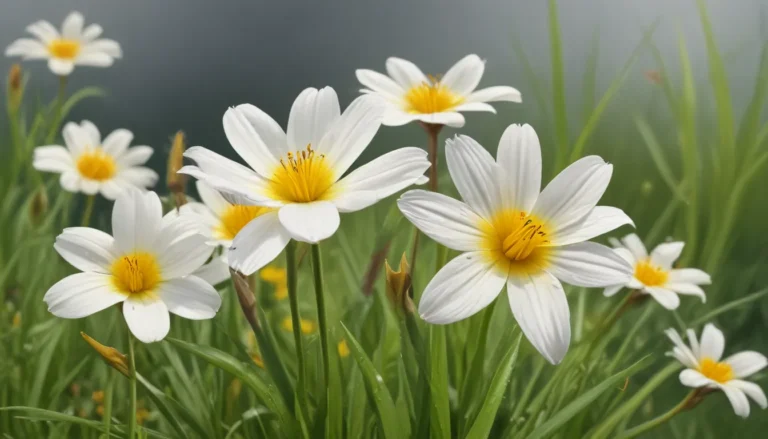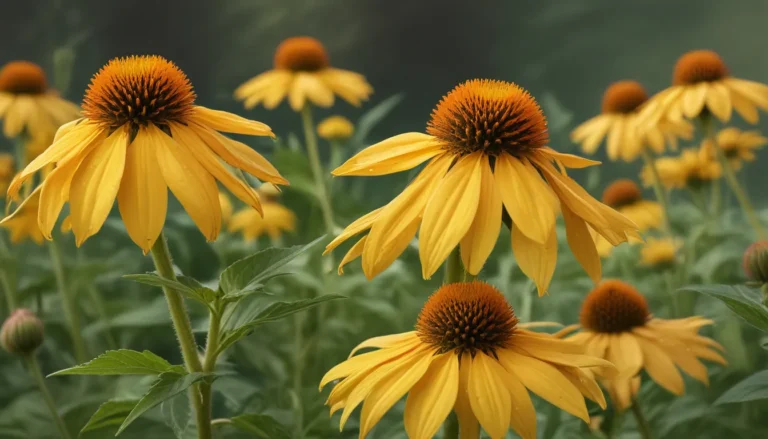The pictures we use in our articles might not show exactly what the words say. We choose these pictures to make you interested in reading more. The pictures work together with the words but don’t take their place. The words still tell you the important facts.
Yucca plants, with their stunning beauty and unique characteristics, have captivated the hearts of many plant enthusiasts and nature lovers. These enigmatic plants, belonging to the Agavaceae family, are native to the hot, arid regions of North and Central America. Their striking architectural structure, characterized by long, sword-shaped leaves and imposing flower spikes, sets them apart in the botanical world. However, there is much more to Yucca plants than meets the eye. In this article, we will embark on a journey to uncover 19 fascinating facts about Yucca plants, shedding light on their historical significance, medicinal uses, and mysterious allure. So, let's delve into the secrets of these intriguing plants and unravel the hidden gems they hold within!
The Intriguing World of Yucca Plants
Yucca plants, scientifically known as Yucca, are members of the Agavaceae family, which encompasses several other succulent plants. These resilient beings have adapted to thrive in deserts and dry regions of the Americas, showcasing their ability to withstand extreme temperatures and poor soil conditions. Native American tribes have long recognized the medicinal properties of Yucca plants, utilizing various parts of the plant for remedies such as treating headaches, skin conditions, and arthritis. The sword-like leaves of Yucca plants serve as a defense mechanism against herbivores, while their flowers attract specific moth species for pollination, highlighting their intricate ecological relationships.
Exploring the Rich Heritage of Yucca Plants
Yucca plants have a rich cultural significance, particularly among Native American tribes, where they symbolize strength, protection, and purification. The plant's fibers have been traditionally used for making ropes, baskets, nets, and textiles, showcasing the versatility of this remarkable species. Yucca plants have also found their place in modern society, with some species cultivated as ornamental plants for their striking appearance and architectural form. The extract from Yucca plants possesses natural anti-inflammatory properties, offering relief for conditions like arthritis and joint pain. Additionally, Yucca extract is a popular ingredient in natural haircare and skincare products due to its foaming properties and gentle cleansing abilities.
Unveiling Enigmatic Secrets of Yucca Plants
Yucca plants are known for their longevity, with some species capable of living for several hundred years, adding a sense of mystique to these resilient beings. Their drought-tolerant nature makes them well-suited for dry and arid environments, requiring minimal water and maintenance. Propagating Yucca plants through offshoots or cuttings is a simple process, allowing enthusiasts to expand their Yucca collection with ease. Furthermore, the compounds present in Yucca plants have been found to repel certain pests, making them beneficial for organic gardening and pest control. The Yucca plant's historical significance is further highlighted by its designation as the official state flower of New Mexico in 1927, honoring its resilient spirit and enduring legacy.
Enriching Insights and FAQs
Q: Are Yucca plants easy to care for?
A: Yes, Yucca plants are generally low-maintenance and adaptable to different growing conditions, making them ideal for beginners and experienced gardeners alike.
Q: Can Yucca plants be grown indoors?
A: Absolutely! Yucca plants can thrive indoors as long as they receive ample sunlight and are planted in well-draining soil to prevent waterlogging.
Q: How long do Yucca plants live?
A: Yucca plants have a long lifespan, with some species capable of living for several decades under proper care and conditions.
Q: Are Yucca plants toxic to pets?
A: While most Yucca plants are not highly toxic to pets, it's advisable to keep them out of reach as ingestion may cause discomfort. Consult a veterinarian for concerns.
Q: Do Yucca plants tolerate cold temperatures?
A: Some Yucca species are more cold-hardy than others and can withstand frost to a certain extent. Protect them from prolonged exposure to freezing temperatures.
A Journey of Discovery and Wonder
In conclusion, Yucca plants continue to mesmerize us with their beauty, resilience, and cultural significance. Whether you're drawn to their unique appearance or intrigued by their diverse uses, Yucca plants offer a wealth of fascinating facts and enriching experiences. Their historical roots in Native American culture and folklore add a layer of intrigue to these captivating plants, making them a topic worthy of exploration and admiration. As we unravel the mysteries of Yucca plants, we discover a world of wonder and inspiration that transcends time and borders. Join us on this enchanting journey as we uncover the enigmatic secrets of Yucca plants and embrace the beauty of nature's finest creations.
Your Exploration Awaits
At our core, we are committed to delivering accurate, engaging content that inspires and educates. Each fact shared is a testament to our dedication to quality and authenticity, ensuring that your journey of discovery is filled with wonder and enriching insights. With each new discovery, we invite you to join us in celebrating the beauty and mysteries of the natural world. Trust in our commitment to excellence as we walk hand in hand on this captivating journey of exploration and wonder. Embrace the allure of Yucca plants and embark on a voyage of discovery unlike any other.






